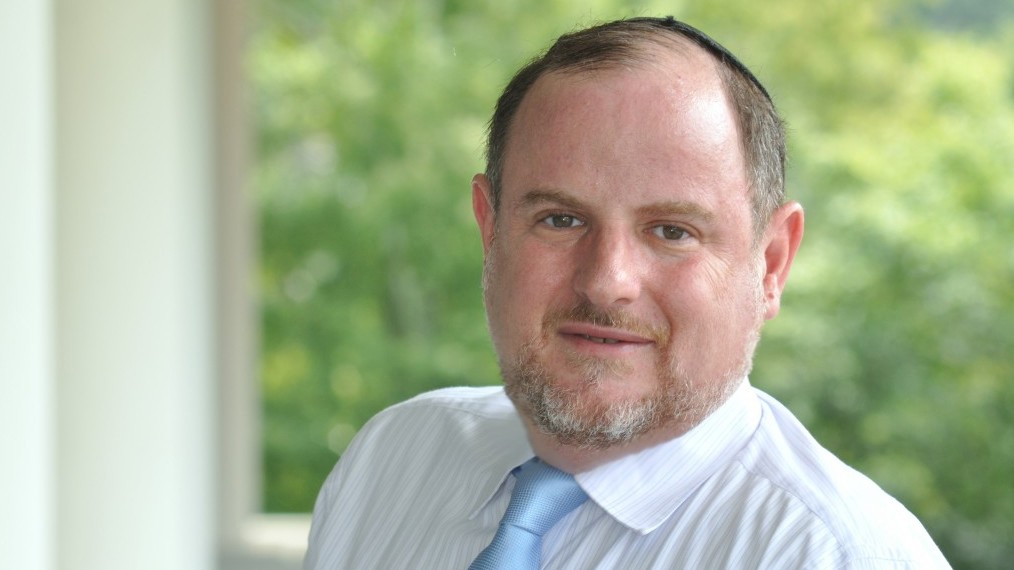NEW YORK (JTA) — Until last week, Michael Broyde was considered one of the most respected Orthodox rabbis in America.
A professor of law at Emory University, the author of dozens of books and articles, and a leading authority on the intersection of religious and secular law, Broyde was sought after regularly to render opinions on matters of ritual practice and Jewish ethics.
He was among the handful of members of the Beth Din of America, the centrist Orthodox community’s religious court. He reportedly was shortlisted as a candidate to replace Jonathan Sacks as the chief rabbi of the United Kingdom. The chancellor of Yeshiva University, Rabbi Norman Lamm, said Broyde possessed “the finest mind of his generation.”
Now Broyde’s reputation may be irrevocably tarnished amid revelations that for 20 years he used a fake identity to publish scores of letters in scholarly journals and online correspondence. Broyde also admitted to using the false name “Rabbi Hershel Goldwasser” to gain membership for a time in the International Rabbinic Fellowship, an association of liberal Orthodox rabbis.
The revelations were first reported last Friday by The Jewish Channel’s website. After initially denying the charges to The Jewish Channel’s reporter, Broyde quickly owned up once the article was published, sending an apology about an hour afterward to the Rabbinic Fellowship.
However, as the story was picked up by Jewish media around the world, Broyde downplayed the importance of the deception and told Haaretz he didn’t understand why the issue was such a big deal.
Now the Beth Din of America has placed Broyde on indefinite leave and the Rabbinical Council of America, the court’s parent body, is considering further measures. The Emory Law School has launched an “inquiry.”
Meanwhile, Broyde’s reputation as a scholar and ethicist has taken a beating that could be irreparable.
“The allegations regarding the conduct of Professor Michael Broyde are concerning to the Law School,” Emory said in a statement Monday. “We are currently reviewing the matter and plan to issue a statement once our inquiry is complete.”
Broyde is the latest in a string of scholars and public figures to be undone by the conventions of the Internet age.
Just last week, the chief rabbi of France, Gilles Bernheim, resigned his post after bloggers revealed that he had plagiarized parts of at least two books and lied about his academic credentials. Over the last few days, the New York media have been abuzz about the possible reentry into politics of former U.S. Rep. Anthony Weiner, a New York Democrat who resigned after tweeting a lewd photo of himself and then lying about it.
In Broyde’s case, the rabbi appeared to lack the sophistication for a successful Internet ruse. Confronted with evidence that the man who posted online and wrote to journals as Goldwasser was a false persona that Broyde had concocted, Broyde initially denied the charges. Asked why his personal Internet Protocol addresses matched those of correspondence from Goldwasser, Broyde reportedly said he didn’t know what IP addresses were.
Using the fake name, Broyde gained access to the Rabbinic Fellowship, a grouping of liberal-minded Orthodox rabbis founded in 2008 by Rabbi Avi Weiss, at a time when the organization was in its infancy and did not have rigorous membership standards. After the formalization of membership procedures the following year, efforts were made to verify Goldwasser’s identity. When the effort failed, Broyde’s alter ego was booted from the organization.
Prior to that, Goldwasser had engaged in several intellectual debates with other rabbis in Jewish publications. He was even mentioned in the preface to the 2009 Koren prayer book as one of the rabbis who had aided in its publication.
Pressed about the Goldwasser character by The Jewish Channel, Broyde initially offered several biographical details, including that Goldwasser had been a friend of Broyde’s father at a yeshiva in the 1950s and subsequently had moved to Israel.
Ultimately, Broyde confessed and issued several apologies — sort of.
In a letter to the past president of the Rabbinic Fellowship, Rabbi Barry Gelman, and in a posting to the blog Hirhurim-Musings, Broyde apologized and noted several times that his behavior was “inappropriate.” But he also downplayed his actions.
In the Hirhurim post, Broyde admitted that he had erred in using the fake name to join a professional organization, an action for which he said he was “truly and genuinely sorry.” But on the wider use of a pseudonym, Broyde wrote that he did not find this particularly harmful, noting that writing under an assumed name has a long history in Jewish discourse.
The wider rabbinic community has seen the matter quite differently. RCA President Rabbi Shmuel Goldin told JTA that he found the charges against Broyde “disturbing.” The Rabbinic Fellowship said Broyde had violated the group’s “sacred” space.
“As a prominent dayan of the BDA, rabbi and posek, Rabbi Broyde’s actions are all the more saddening and shocking,” the fellowship said in a statement, using the Hebrew terms for religious judge and decisor of Jewish law. “Honesty and yashrut [integrity] must be the hallmarks of all Jews and especially all who occupy positions of leadership in the community.”
Broyde declined to be interviewed for this story.
JTA has documented Jewish history in real-time for over a century. Keep our journalism strong by joining us in supporting independent, award-winning reporting.






